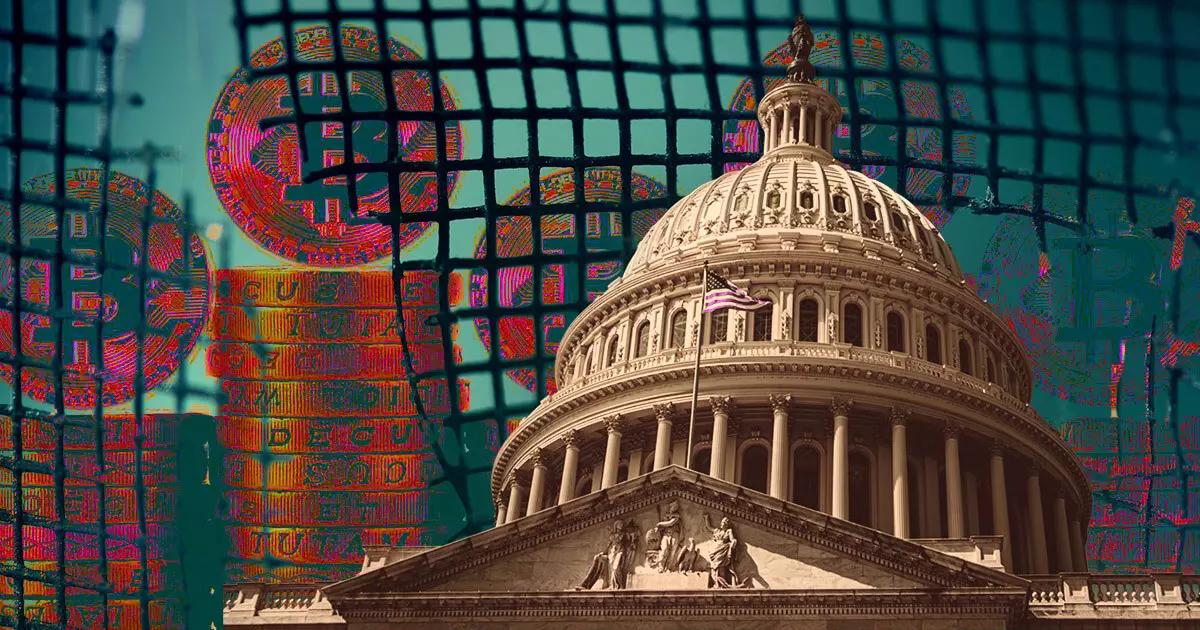The recent introduction of the Crypto-Asset National Security Enhancement and Enforcement Act (CANSEE) has sparked controversy within the cryptocurrency community. This bill aims to impose stringent regulations on individuals involved in decentralized finance (DeFi) and has drawn criticism from various crypto advocacy groups. In this article, we will delve into the concerns raised by these groups and explore the potential implications of the CANSEE bill.
CoinCenter, a prominent crypto advocacy group, has been at the forefront of denouncing the CANSEE bill. They argue that the proposal is “messy, arbitrary, and unconstitutional.” One of their main concerns is the potential legal implications for individual developers. If the bill becomes law, developers could face sanctions penalties and Bank Secrecy Act (BSA) obligations. CoinCenter also highlights the extensive authority granted to the Secretary of the Treasury in determining control over various protocols. The proposed exemptions fail to adequately address this issue, potentially giving rise to abuse of power. Moreover, CoinCenter raises the alarming possibility that even individuals who publish books containing code could face enforcement actions, which they consider a significant overreach.
Blockchain Association’s Response
The Blockchain Association, another influential crypto advocacy group, has also expressed strong opposition to the CANSEE bill. They argue that the bill is “unworkable” and fails to align with the nature of digital asset technology. According to the association, illegal transactions accounted for only a minute fraction of all crypto transactions in 2022 (0.24%), indicating that existing law enforcement powers are already sufficient. Instead of the CANSEE bill, the association supports alternative measures that specifically target illegal activities. They propose incorporating amendments into a national defense bill to address cryptocurrencies, a more nuanced approach that considers the complexities of the industry.
The Threat to Decentralization
Natalie Smolenski, a senior fellow for the BTC Policy Institute, adds her voice to the mounting concerns regarding the CANSEE bill. She asserts, “They’re now trying to outlaw decentralization.” Smolenski’s statement underscores the potential impact of the bill on DeFi platforms’ decentralized nature, which has been instrumental in shaping the crypto industry as we know it. The proposed regulations threaten to compromise the fundamental principles of decentralization, leading to uncertainty about the future of innovative financial technologies.
The criticism surrounding the CANSEE bill reflects a broader debate about the balance between individual rights and regulatory necessities in the crypto space. While combating illicit activities like money laundering is important, there is a concern that the bill takes a content-based approach that may infringe upon free speech. The characterization of the bill as a “blanket ban” highlights its overly broad reach, impairing innovation, and stifling entrepreneurial spirit. Advocates argue that policymakers should consider the significance of decentralization and innovation when formulating regulations, striking a delicate balance between protecting against illegal activities and fostering the growth of the industry.
The CANSEE bill has elicited strong opposition from crypto advocacy groups like CoinCenter and the Blockchain Association. These groups have raised valid concerns about the bill’s potential infringement on individual rights, its broad scope, and its compatibility with digital asset technology. The ongoing debate surrounding the bill’s future highlights the pivotal role that innovation and decentralized principles play in the cryptocurrency industry. As policymakers continue to deliberate the fate of the CANSEE bill, it is crucial that they take into account the potential consequences for decentralized finance and strike a balance between regulation and fostering growth in this rapidly evolving ecosystem.


















